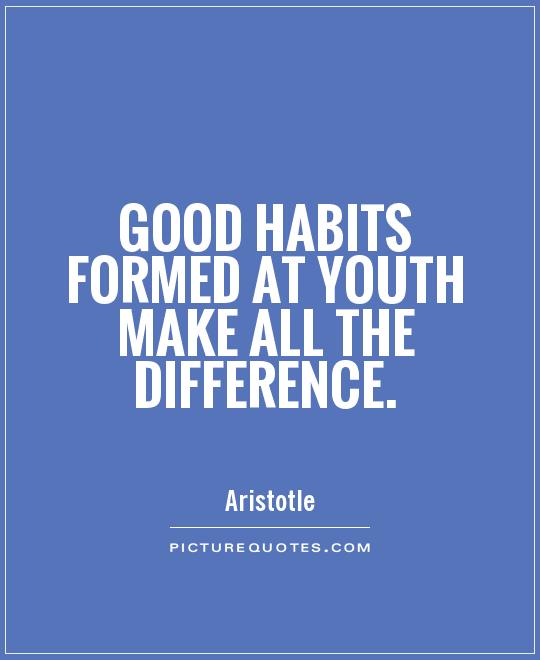Good habits formed at youth make all the difference

Good habits formed at youth make all the difference
Aristotle, one of the greatest philosophers of all time, once said, "Good habits formed at youth make all the difference." This profound statement holds true even in today's world, where the importance of instilling positive habits in young individuals cannot be overstated. The habits we develop in our formative years have a lasting impact on our lives, shaping our character, behavior, and ultimately, our destiny.Aristotle believed that habits are the building blocks of our character. By cultivating good habits from a young age, we lay the foundation for a virtuous and fulfilling life. For example, if a child is taught the importance of honesty, hard work, and perseverance early on, they are more likely to exhibit these traits as they grow older. On the other hand, if a child is allowed to develop bad habits such as laziness, dishonesty, or impulsiveness, it can be difficult to break free from these negative patterns later in life.
Furthermore, Aristotle understood the power of repetition in forming habits. He believed that by consistently practicing virtuous behaviors, we can train ourselves to act in accordance with our values and principles. This is why it is crucial to instill good habits in youth, as they are more receptive to learning and adapting to new behaviors. By teaching children the importance of discipline, self-control, and responsibility, we can help them develop the skills they need to navigate life's challenges with grace and resilience.
In today's fast-paced and increasingly complex world, the need for good habits has never been greater. With the rise of technology and social media, young people are constantly bombarded with distractions and temptations that can lead them astray. By teaching them the value of mindfulness, moderation, and balance, we can help them cultivate habits that promote mental, emotional, and physical well-being.












 Friendship Quotes
Friendship Quotes Love Quotes
Love Quotes Life Quotes
Life Quotes Funny Quotes
Funny Quotes Motivational Quotes
Motivational Quotes Inspirational Quotes
Inspirational Quotes